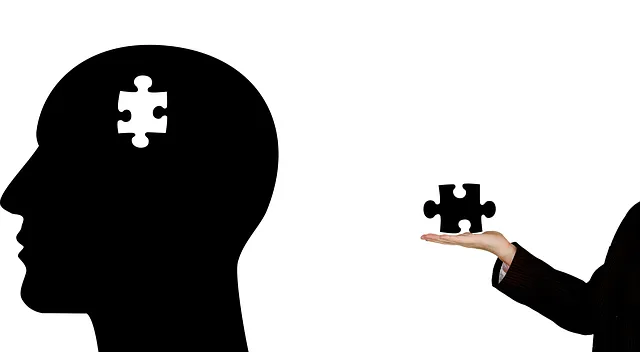Crisis intervention is a critical aspect of mental health support, and Kaiser Littleton offers a comprehensive approach. By integrating Mental Health Education, Empathy Building, and Mental Wellness Coaching programs, they provide personalized care, accessible resources (like their podcast series), clear communication during crises, and ongoing follow-up for long-term recovery. Learning how to access their services is a vital step towards enhancing mental well-being.
In times of crisis, effective intervention can make all the difference. This guide explores essential strategies for navigating high-pressure situations, focusing on a holistic approach to support individuals in need. We delve into the fundamentals of crisis intervention, highlighting the role of services like Kaiser Littleton in providing mental health support. By understanding communication techniques and post-intervention care, professionals and bystanders alike can effectively assist those facing acute distress, ensuring better outcomes and fostering resilience. Learn how to access Kaiser Littleton’s resources for mental health services during a crisis.
- Understanding Crisis Intervention: A Brief Overview
- Accessing Mental Health Services Through Kaiser Littleton
- Effective Communication Strategies During a Crisis
- Post-Intervention Support and Follow-Up Care
Understanding Crisis Intervention: A Brief Overview

Crisis intervention strategies are essential tools for addressing immediate and intense emotional distress or mental health crises. When someone experiences a crisis, whether it’s a sudden traumatic event, severe depression, or an anxiety attack, prompt and effective support can make a significant difference in their recovery journey. Understanding how to provide such aid is crucial, especially in communities like Littleton, where access to mental health services through Kaiser is readily available.
A key aspect of crisis intervention involves promoting coping mechanisms and providing a safe space for individuals to express their feelings. Mental Health Education Programs Design can play a vital role in empowering individuals with knowledge about managing stress, recognizing warning signs of potential crises, and seeking professional help when needed. Additionally, Empathy Building Strategies are essential to fostering connections and understanding between the intervenor and the person in crisis, creating a supportive environment that encourages open communication. The development of Mental Wellness Coaching Programs can further enhance these interventions by offering long-term strategies for maintaining mental health and resilience.
Accessing Mental Health Services Through Kaiser Littleton

Accessing Mental health services through Kaiser Littleton offers a convenient and comprehensive way to support your well-being. The first step is reaching out to their care team, who can guide you through the available options tailored to your specific needs. Whether it’s scheduling an appointment with a therapist, attending group support sessions, or exploring online resources, the staff ensures a smooth process.
Kaiser Littleton provides a range of services focusing on self-esteem improvement and empathy building strategies, integral aspects of mental wellness. Their Mental Wellness Podcast Series Production is another unique offering, giving you access to valuable insights and tools for enhancing your mental health from the comfort of your home.
Effective Communication Strategies During a Crisis

During a crisis, clear and effective communication becomes even more vital. It’s essential to listen actively, ensuring that individuals involved feel heard and understood. This involves giving them space to express their feelings and concerns openly, reflecting on what they say, and asking clarifying questions to ensure comprehension. For those seeking mental health services through Kaiser Littleton, this empathetic approach can significantly enhance the support they receive.
Additionally, providing simple and straightforward information about available resources, such as Mental Wellness Coaching Programs Development or Stress Management Workshops Organization, is crucial. Using accessible language and avoiding jargon ensures that individuals can quickly grasp how to access Emotional Healing Processes. This immediate clarity can help de-escalate situations and guide people towards the support they need most effectively.
Post-Intervention Support and Follow-Up Care

After a crisis intervention, providing ongoing support and follow-up care is paramount to ensuring the individual’s long-term well-being. It’s during this phase that the real work begins, as individuals navigate their journey towards recovery. One key aspect is facilitating access to mental health services, such as those offered by Kaiser Littleton, where specialized therapists can offer tailored support. This step is crucial in helping individuals process their experiences and develop coping mechanisms for future challenges.
The Mind Over Matter Principles emphasize the power of resilience and self-care, which are nurtured through regular check-ins and therapy sessions. Additionally, healthcare providers should integrate Burnout Prevention Strategies to ensure they are equipped to support others effectively. Conflict Resolution Techniques can also be valuable tools during follow-up care, fostering healthier relationships and promoting positive outcomes for both the individual in crisis and those involved in their care.
Crisis intervention plays a vital role in supporting individuals during challenging times. By understanding the key strategies outlined, such as effective communication and post-intervention care, we can foster a more compassionate and responsive environment. For those seeking mental health services, accessing resources like Kaiser Littleton provides a reliable foundation for recovery. Remember that with the right guidance and support, navigating crises is possible, and individuals can emerge with enhanced resilience.






